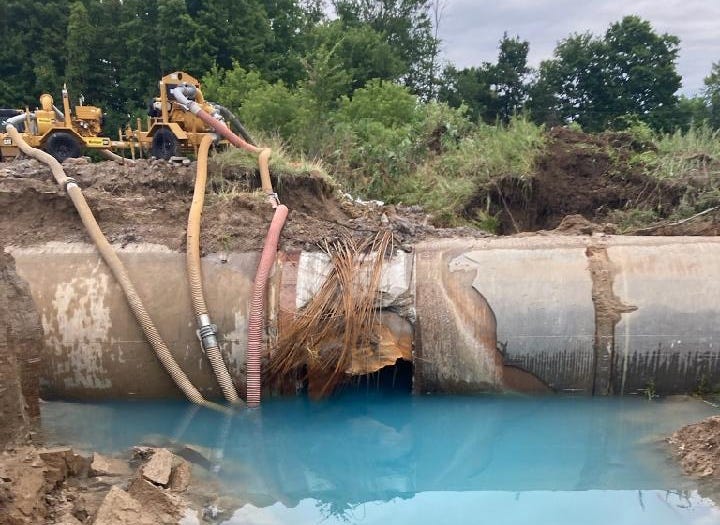
STERLING HEIGHTS (WWJ) - Homeowners in 23 communities will have to wait for lush lawns amidst the latest plea from officials to limit outdoor water usage as repairs to a massive water main break continue.
The Great Lakes Water Authority has asked residents in the cities included in the original boil advisory to stop watering their lawns in order to preserve the limited water supply.
GLWA CEO Suzanne Coffey said refraining from outdoor usage will conserve water for residents, businesses and emergency services who need it.
"As GLWA continues to work on the repairs to the 120-inch water main break on the regional water system that caused last Saturday’s Boil Water Advisory, limited outdoor water use can help reduce the load on the regional water system and help other surrounding communities possibly lift their Boil Water Advisory sooner," the city of Sterling Heights said Wednesday on a social media post.
Early Saturday morning, the GLWA said it discovered a leak on a 120-inch water main that distributes finished drinking water from its Lake Huron Water Treatment facility to communities in the northern part of its service area.
A boil water advisory was declared by the GLWA, which affected more than 900,000 people in Metro Detroit; primarily in Macomb and Oakland counties.
The 23 cities included in the boil advisory last weekend are as follows:
Village of Almont
Auburn Hills
Bruce Township
Burtchville Township
Chesterfield Township
Clinton Township
City of Flint
Flint Township
Imlay City
City of Lapeer
Lenox Township
Macomb Township
Mayfield Township
Village of New Haven
Orion Township
City of Pontiac
City of Rochester
City of Rochester Hills
Shelby Township
City of Sterling Heights
City of Troy
City of Utica
Washington Township
As of Monday morning, only seven communities remained under the boil water advisory — including around 133,000 people.
Those cities include the Village of Almont, Bruce Township, Burtchville Township, Imlay City, the City of Rochester, Shelby Township and Washington Township.
Officials with the GLWA said a replacement pipe has arrived from Texas and the timeline for returning the pipeline to service was originally estimated at two weeks from the date of the initial break on Aug. 13.
On Tuesday, the GLWA said repairs could now take three weeks, with service returning on Sept. 3.


